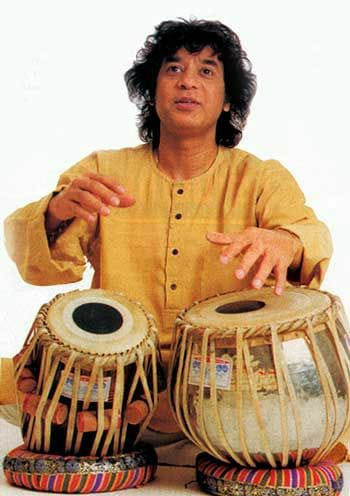
On the night of February 14, 2000, days after his father, the great tabla maestro Ustad Alla Rakha, passed away, Ustad Zakir Hussain mesmerised an audience at the Trade Centre in Dubai with an emotional performance during the concert “The Beat of the Millenium” featuring nine percussionists creating a fusion of music, an amalgamation of the East and the West. As a tribute to his late father, Ustad Alla Rakha, Zakir Hussain was candid with the audience, saying, “My father would not have wished me to cancel the concert. It is good therapy to play a few drums”.
I had the opportunity to speak to Ustad Zakir Hussain prior to the concert when he anticipated that the concert would be unusual as “so many masters will sit on stage together and play as one”. During a nine-hour stop-over in Dubai the previous month, Zakir Hussain had not travelled with his tabla, but this did not deter him from playing. Before he knew it, the top of a banquet table at the Le Meridian airport hotel became his surrogate instrument. His fingers flew and the rhythm and sound were amazing. He talked to the instrument, in his own inimitable way, with ferocious enthusiasm.
Is it possible to amalgamate eastern and western music? This question has been asked by music lovers over and over again. He maintained that you cannot title music. Marketing gimmicks can call it jazz, rap, fusion, but “for us musicians, music is music”. An interaction of great masters of different traditions has one common ground and it is rhythm. Rhythm is universal, he said, and you cannot tell if it is Indian, Western or Japanese. “When we play together, we do not stick to strict guidelines.”
Ustad Zakir Hussain began the study of the tabla at the early age of five under his father’s tutelage. He studied and learnt all seven major styles and is therefore one of the few artists who can play a new piece perfectly after the first attempt.
Did the father and son relationship interfere with the Guru-Shishya (teacher-pupil) relationship? “No”, he said, “my father was very strict and never pulled any punches with me, especially on stage. I am glad he did that because he taught me how to handle myself. He always said that ‘this music is Saraswati, it is very pure and spiritual’”. “To be a good performer you have to have a certain type of ego”, explained Zakir Hussain. “Without that you would be so nervous that you would not be able to perform.”
One of Zakir’s most treasured moments in life was in 1988, the night he heard that he was the youngest percussionist to be awarded the Padma Shri Award by the President of India. The Padma Awards are one of the highest civilian honours bestowed by the Indian Government. The announcement came in the middle of a concert where Pandit Ravi Shankar and his father Ustad Allah Rakha were present. Ravi Shankar called Zakir an ‘ustad’ (teacher) and his father ran on to the stage to garland him. “It is a moment I will never forget,” he reminisced. Zakir Hussain went on to be awarded the Padma Bhushan in 2002 and the Padma Vibhushan in 2023.
The last word comes from Zakir Hussain. “I could not be anything else but a tabla player.”
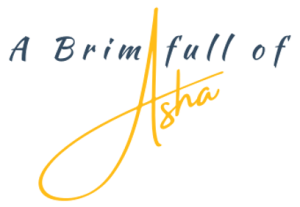
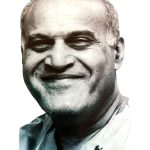
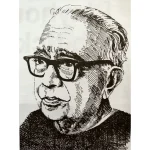
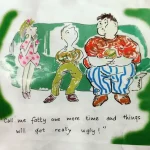

Advaita principles state that there is no separate individual other than the Divine. The world and everyone and everything in it fall within the realm of Creatorship. Perception, is an aspect of Divinity, as is mentation. What perception says is a partial view of the big picture.. The big picture is Oneness in all perceivables. To transcend the illusion of a separate self requires absolute surrender to the Source, aks God, aka Divinity etc. A sliver of a hair separates the illusory from the Reality. So in this context when Zakir Hussain says “I could not be anything else but a tabla player” he is right. In the highest spiritual context we as humans cannot be anything other that what we are… mere expressions of the Will of God.